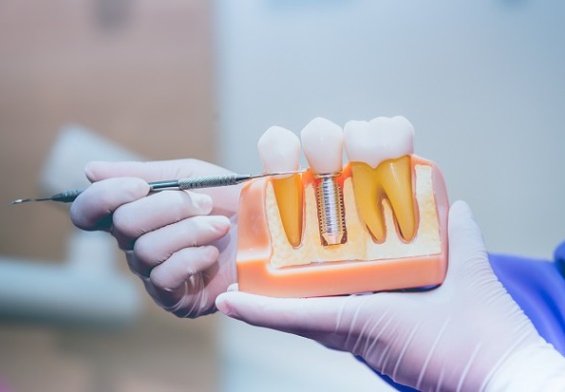Have you ever gone to the local ice cream shop, on a hot summer day, expecting to enjoy your favorite flavor? When you finally tasted the flavor, did your teeth instantly feel pain from the cold? This could mean your teeth are more in control than your taste buds. Many people suffer from feeling immediate tooth pain from warm or cold foods. Some folks will even avoid certain foods altogether knowing it will be too painful to enjoy. So, what causes teeth to feel sensitive? Is it possible for teeth to feel more pain later in life? These are just a few of the questions people have been asking and we have answers.
Teeth Notice Hot and Cold
There are a few common causes for sensitive teeth that include:
- Damaged Teeth with Chips or Cracks
- Gum Disease
- Overly Aggressive Tooth Brushing
- Exposed Roots
- Cavities
- Grinding Teeth and Misaligned Jaw
- Wearing Braces
- Using Over-the-Counter Teeth Whitening
- Bad fillings or Worn Dental Crowns
As we can see there are many reasons a tooth could be sensitive. Sometimes the things that cause tooth sensitivity are not even things that can be fixed immediately. It’s possible that you have a misaligned jaw that either happened from an accident or from birth. In this case, jaw surgery is the only way to correct this problem and it is relatively invasive. More temporarily, you might need to wear braces on the teeth to fix basic tooth alignment. When wearing braces there are a lot of things you must grow accustomed and sensitivity is one of them. This is primarily because some braces are constructed to fix against the tooth enamel and this causes the root within the tooth to feel more sensitive.
Signs That Teeth are Too Sensitive
The biggest sign would be noticed when eating a food that has a noticeable temperature difference that’s above or below room temperature. The pain that someone might feel will change depending on the severity of the sensitivity.
You will be able to decipher “trigger foods,” these are foods to avoid until you talk to your dentist. A Dentist will suggest making notes of when your teeth feel most sensitive to better treat your needs.
Preventive Measures for Sensitive Teeth
Thankfully, there are ways to treat tooth sensitivity so you don’t have to live life avoiding foods you love. Start by ensuring good dental hygiene. If you don’t floss often or use fluoride mouthwash the problem could be fixed by changing how you care for your teeth. If you already take good care of your teeth and you still feel pain it could be the type of toothpaste you are using. Many brands of toothpaste use key ingredients like sodium pyrophosphate and this could be the problem. You might want to buy desensitizing toothpaste to see if the previous toothpaste was a part of the issue. However, using this type of toothpaste can take several weeks or months before you start noticing the difference.
Excessive Tooth Cleaning
Part of good dental hygiene is knowing the happy medium. Over brushing your teeth can be just as bad as not brushing your teeth. Your teeth have protective layers that hide tiny hollow tubes that link to the nerves. When you aggressively brush your teeth you expose the tubes and this can feel like an open sore. The openness leaves room for acidic foods to contact the nerves and this causes pain. The discomfort that someone feels is usually associated with some kind of nerve exposure. This can be worse if a cavity or gum disease causes the vulnerability of the nerves.
Teeth Whitening
Everyone wants to have bright white teeth and will go to great lengths to obtain them. The fact of the matter is if you are experiencing pain in your teeth you should not use teeth whitening agents. In fact, your pain could’ve been a result of over teeth whitening. It’s normal for teeth to be an eggshell white rather than a florescent white.
Treat Sensitive Teeth
Dentists do have prescriptions they can offer to people that suffer from sensitive teeth; it comes in the form of paste or fluoride gel. If this does not remedy the problem after the prescribed amount of time your dentist might take a different approach. If there is a specific location in your mouth that is more widely affected they might suggest a crown or a filling to fix the issue.


